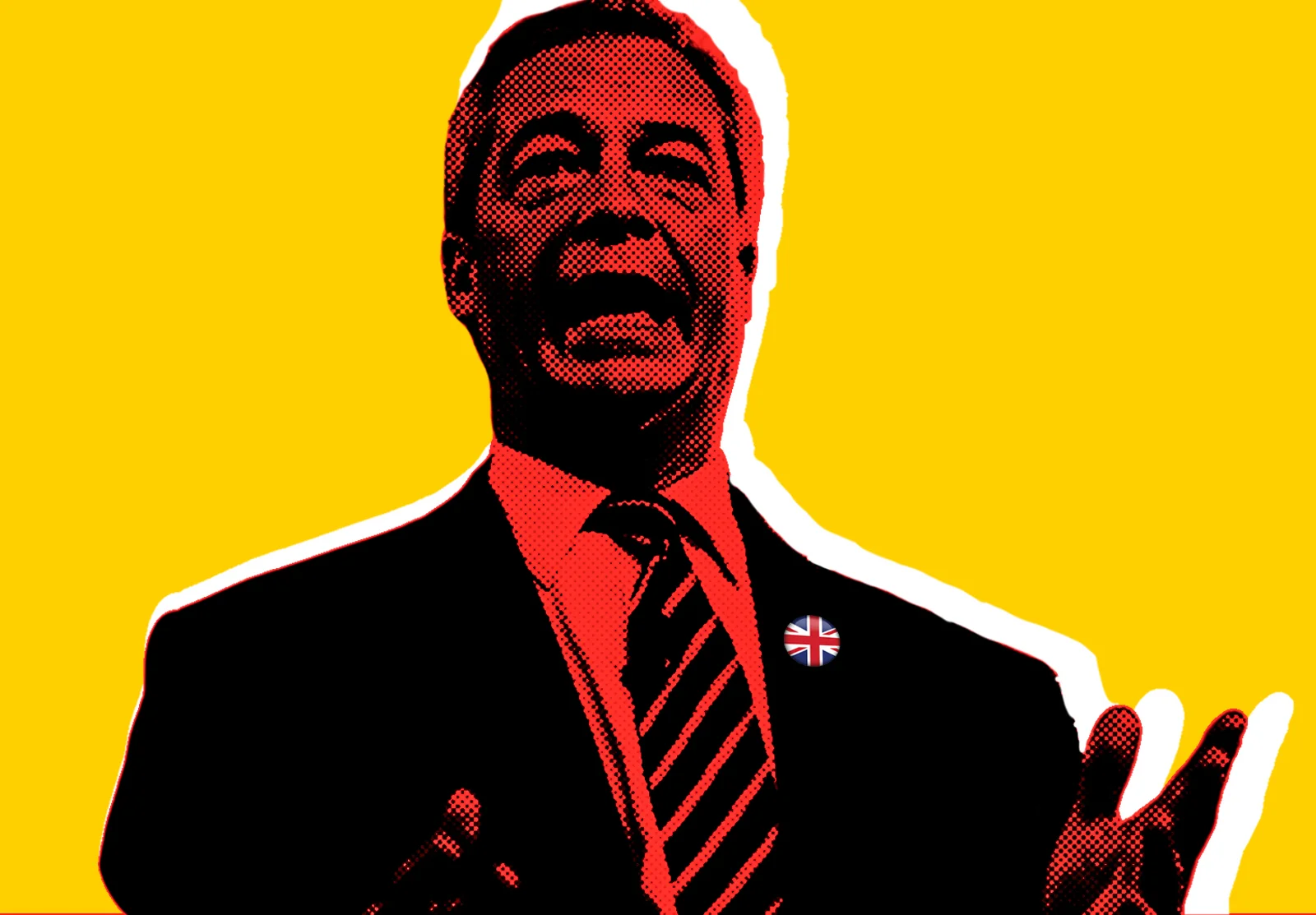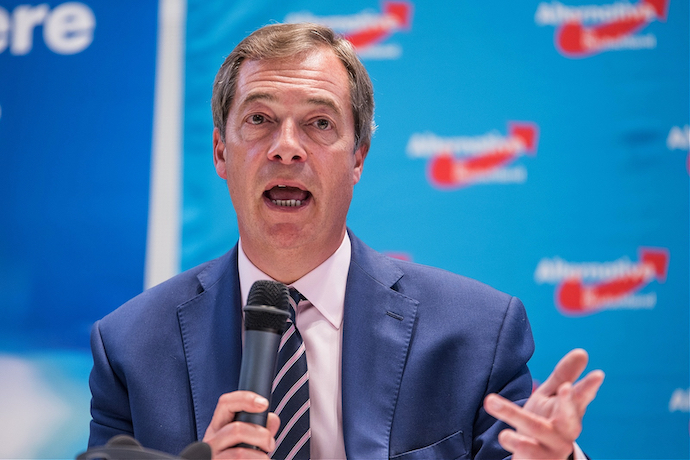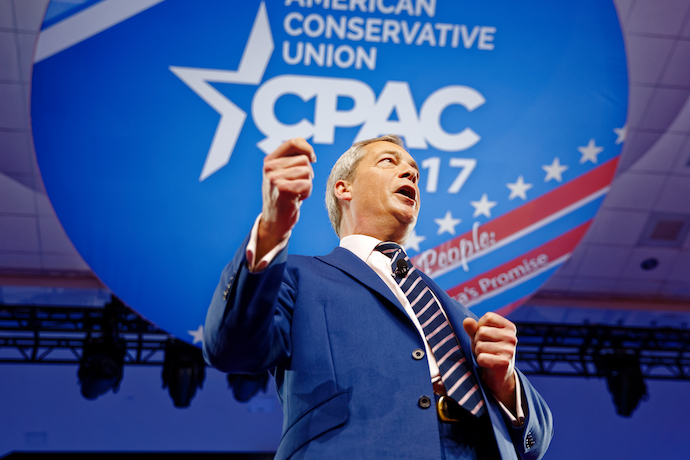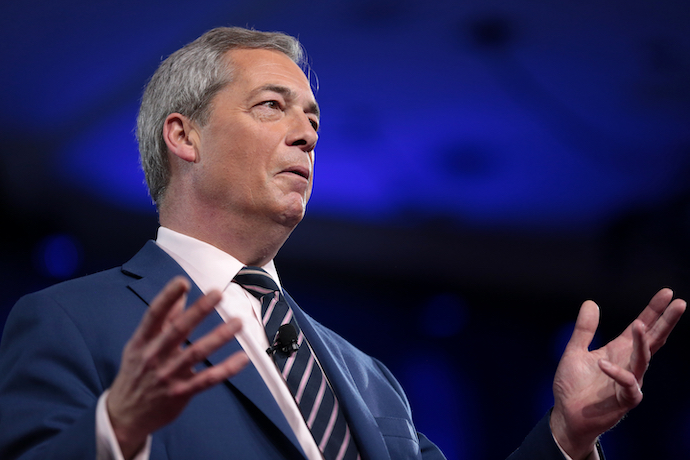
Nigel Farage is Britain’s Most Complex Politico
It seems that there are at least 60 elections globally this year, a veritable glut for the world’s electorate to feed on.
Most will be aware of a certain election in the United States in November, but there’s another that, thus far, you may have heard little about. It’s the “snap” election called by UK Prime Minister Rishi Sunak for July 4.
So far, though, this particular poll has been, shall we say, somewhat underwhelming, hence its probable absence from most TV screens outside of Britain.
That all changed in the last few days with the announcement that arguably the best-known politician in the UK had decided to stand as a candidate. The man is Nigel Farage, yes, that Nigel Farage, the man who, for many, almost single-handedly took Britain out of the European Union.
Farage announced his return to frontline politics on May 3, when he said he would replace Richard Tice as Reform UK leader and stand as an MP for the eighth time. He had previously insisted he would not stand as a candidate in the election and instead focus on boosting Donald Trump’s chances of returning to the White House. But the politician dubbed by some as “Teflon Nigel” – no matter what is thrown at him, nothing ever seems to stick – is back in frontline politics.

Actually, it was less than 48 hours after his announcement that something really was thrown at Farage – a milkshake delivered by a young woman while he was addressing a large crowd. A visibly emotional Farage was asked if he thought about what would happen if it was something “more serious” than a milkshake. He replied: “That’s a very tough question to answer. I try not to.”
His entry into the election race could land a bitter blow to Prime Minister Sunak’s election campaign.
Some 37 percent of those in Clacton, the rundown Essex seaside town where he will stand, say they will now vote for Farage compared with 18 percent for Anthony Mack, the previous Reform UK candidate. Reform UK will not perform anywhere near as well but, according to pundits, could still win a handful of seats and, more tellingly, cause untold damage to the Tories).
So, how do you explain the “cult” that Nigel Farage seems to have become?
He is possibly the most divisive figure in British politics, its most colorful, and one who just seems to bounce back time and time again, irrespective of what may be thrown at him, milkshakes and all.
My own personal recollections of a very personable (and welcoming) Farage go back many years, to just after the turn of the new century and not long after his election, as a member of the UK Independence Party, as an MEP in the European Parliament.

I still clearly recall being taken aside one early morning by his close aide who, pointing to Farage, sat in the parliament’s bar (sipping coffee alone) and plowing through the day’s (British) newspapers, proudly declared: “Look at him. He’s up at the crack of dawn every day, working flat out. He never stops.”
I was struck then (and since) by the impressive sense of loyalty and devotion Farage seems to inspire in those surrounding him. If he worked hard, he also knew how to have fun.
UKIP, back then, used to throw some, shall we say, rather boisterous and lively after-hours drinks for journalists like me and others when the Parliament met each month in Strasbourg. This was circa 2001 and, back then, Farage had yet to really make his mark on the political scene, but he was clearly the “leader of the pack” and appeared to love being the center of attraction (he was subsequently re-elected to the EU parliament no less than four times).
Fast-forward to the present day, and his decision to contest Clacton for his new party (yes, another political party) has undoubtedly energized a flagging election campaign in the UK and possibly also re-energized a tired-looking Tory Party that seriously faces being pushed into second place by Reform UK even in Conservative strongholds.
How, then, does Nigel Farage do it?
Well, most would agree that he continues to directly appeal to that endearing old-fashioned British trait—a slightly melancholic thirst for a “glorious” past, a post-Empire era that still had Great Britain truly at the heart of things. Today, many really do struggle to accept that dear old Blighty may have had to join the ranks of becoming just another middle-ranking nation.
It was, after all, older British voters who, in such large numbers, backed the Farage-led call for Britain to exit the EU.

But there is far more to Farage than his sharp suits, that “man of the people” persona and penchant for making the headlines, albeit sometimes unwanted. He and his UKIP colleagues may have caused uproar in it at times but, certainly, the European Parliament has seemed a slightly duller place to write about since his departure.
He is, in fact, far more complex than some would give him credit, highly articulate, a deep thinker, and, yes, a genuinely very hard-working individual who, as with Brexit, pursues his goals with a real zest and passionate vigor that seems lacking in many politicians of his generation.
It was, lest it be forgotten, Farage who helped shift the idea of Brexit from the outer fringes of political debate into the mainstream. In 2016, when the country voted to quit the EU, the victory was his as much as anyone’s. This was a once-in-a-lifetime event that may be Farage’s greatest “achievement” but one that has also had an untold and lamentable impact in so many ways – many of which presumably were way beyond the comprehension of those who voted to leave.
Be that as it may, Farage insists it is exactly this same “sense of duty” that made him do an abrupt U-turn and, contrary to what he’d been saying just days earlier, throw his hat into the ring to stand for the House of Commons. He now wants to punish the Tories “for not delivering” on Brexit by plundering their vote on July 4.
Of course, the move has split opinion.
Take this, for instance, from Rafael Behr in the left-leaning Guardian newspaper: “Nigel Farage has erupted back into British politics like the sonorous belch that warns of a meal undigested; the bilious portent of a messy regurgitation. His campaign speeches come in familiar flavors with an edge of stale acidity – the scorn for a ‘Westminster class’ that knows no patriotism; the lament for a country in social, economic, and moral decline; the warning that mass immigration is gobbling scarce public resources and confected fury at betrayal by politicians who keep breaking their promises.”
Contrast that with comments by former UKIP politician Douglas Carswell in the Tory-supporting Telegraph newspaper: “Nigel Farage can win in Clacton and save Britain from this funk. Rather than criticize Nigel for dithering about the decision to stand, we should see it as a sign that – once again – he has had to get involved because those who ought to present a clear conservative platform have failed to.”
Where all this leaves Farage’s well-publicized plans to help his big buddy Donald Trump himself, get elected later this year is unknown. The idea, apparently, was that Farage would be in the U.S. around the time of the UK election to help champion Trump’s campaign.
Whatever happens there, it begs another question: Is Nigel Farage like Donald Trump? Or is Donald Trump like Nigel Farage? The two men may come from different sides of the pond, but they have successfully tapped into the ‘forgotten masses.’
Like Trump, you may love him or loathe him, and Farage is probably the first to admit most fall into one category or the other. But the “genius” of Farage is his continuing ability to appeal to the masses – see the large crowds who flocked to his first election campaign speech in Clackton this week.
Many of the perceived flaws (and strengths) of Farage are explored in a superbly researched book, perhaps tellingly entitled One Party After Another, by respected BBC political journalist Michael Crick.
Crick tells the quite fascinating story of how Farage, a public school-educated former metals trader in the City of London, rose from being a Green Party voter in the 1989 EU elections to where he is today.
Too often reduced to a caricature, Crick turns this larger-than-life figure back into a complicated human being who has experienced real adversity in his life. This includes fighting back from a cancer diagnosis and narrowly surviving a light airplane crash, albeit with some serious injuries.
His decision to stand yet again for the UK Parliament (this time, most expect he will almost certainly succeed) has been called a “seismic change to the election.”
Irrespective of the outcome of American Independence Day, he is still relatively young, so you do wonder what might be next for Nigel Farage. Don’t even rule out something lined up by a newly re-elected President Trump. For now, though, it’s all about securing that much sought-after seat in the Commons.
As Nigel Farage himself might say: Bring it on.

